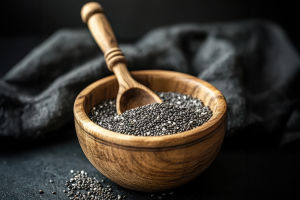Scroll through any Gen Z's Instagram or TikTok feed, and you'll notice a steady stream of leafy friends—succulents in funky pots, thriving snake plants, and sprawling monsteras. But this isn't just a passing trend; it's a cultural movement.
Plant parenting has become a defining lifestyle for many young people, combining emotional wellness, social connection, and personal expression in ways previous generations didn't quite experience.
What is it about caring for plants that resonates so deeply with Gen Z? Let's unpack the layers behind this green obsession and why it's much more than just decorating spaces.
Plants as Emotional Anchors
Unlike digital distractions that can overwhelm or isolate, plants offer a tangible form of emotional therapy. Mental health experts note that nurturing plants can promote mindfulness, reduce stress, and foster a sense of responsibility without the pressure of human interaction.
Dr. Maya Thompson, a clinical psychologist specializing in youth wellness, explains: “For Gen Z, who face anxiety linked to social media, climate anxiety, and economic uncertainty, plant care is a soothing ritual. It provides small wins daily—seeing a new leaf unfold or roots grow—that boost mood and self-esteem.”
It's not just about looking at plants; it's about engaging in a nurturing process that's slow, rewarding, and grounding. This kind of hands-on care contrasts with the rapid pace of digital life, giving young people a way to reconnect with the natural world—even in small urban apartments.
Social Identity Through Green Aesthetics
Plant parenting has also morphed into a social currency among Gen Z. It's a conversation starter, a badge of personality, and a way to signal values like sustainability and self-care.
This generation is redefining home aesthetics through plants. Instead of just filling space, they curate collections that reflect mood, taste. It's common to see plant setups styled alongside thrifted furniture and eco-friendly products, blending style with sustainability.
Influencers and micro-communities centered around rare plants or propagation tips create social engagement that combines learning, sharing, and belonging. As plant collections grow, so does social media presence—and sometimes even side hustles selling cuttings or custom pots.
How Consumer Habits Reflect Deeper Values
Gen Z's plant parenting also ties into broader shifts in consumption. This generation prioritizes experiences over possessions and favors ethical, sustainable brands. Buying a plant is not just a purchase; it's a statement about care for the environment and personal wellness.
A 2023 study by the Sustainable Futures Institute found that 68% of Gen Z buyers choose plants or plant-related products because they see it as a way to contribute positively to the planet while enriching their mental health. This aligns with their increased demand for transparency and responsibility from brands.
However, this also raises questions about plant sourcing and ethical consumption. Overharvesting rare species or buying plants that require excessive resources contradicts Gen Z's environmental goals. Experts urge young plant parents to educate themselves on responsible buying—favoring local nurseries, propagation, and non-invasive species.
Turning Plant Care into a Lifestyle Practice
For many young people, plant parenting goes beyond the hobby phase; it's woven into daily routines and values:
• Ritualistic care: Regular watering, pruning, and propagation become mindful practices akin to meditation.
• Learning mindset: They actively seek knowledge on plant biology, pest control, and sustainable gardening.
• Community engagement: Online forums, plant swaps, and local clubs foster social interaction and environmental activism.
This lifestyle also offers a hopeful counterpoint to the uncertainties of the modern world, providing a sense of control and growth that feels tangible.
What about you? Have you noticed how plants have changed your day-to-day mood or social life? Maybe you've started sharing care tips with friends or found a calming routine in tending to your green companions. Plant parenting is more than a trend—it's a new way many young people are shaping how we live, care, and connect.
So next time you water your favorite plant, think of it as a small but powerful act of wellness, identity, and community. What does your plant parenting journey say about you? Let's share and grow together.


